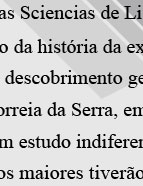

................................
Diplomatic History traces the evolution of diplomacy itself and is at the origin of the profound changes brought by the 19th century to the historiographical field. Krzysztof Pomian ("L’histoire de la science…", 1975, pp. 935-952) regards it as the belle époque of History, a time when it was considered a "science", not just any science, but one of the fundamental sciences of the spirit, a model of objectivity that described what "really" happened. However, by the end of the century, philosophers, sociologists, and even historians were explaining that the notions previously considered self-evident and which underpinned the "scientific" claims of History—facts deemed established "once and for all," the "laws" of development and progress—were merely a pure delusion, a naivety, or even a deception. Nonetheless, this evolution does not signify the abandonment of the concept of a scientific History, nor does it invalidate the contribution of 19th-century Diplomatic History to the critical and documentary apparatus of History as a discipline.
The origins of the words "Diplomatic" and "Diplomacy" stem from the noun diploma, bringing with it the ambiguity of the terms. In classical Greek, δίπλοή means duplicity and the neutral noun δίπλωμα was formed from the word διπλόοζ (double, that folds in two) with the suffix μα (indicating an object), in this case specifically a folio with front and back or folded in two, often a travel permit, with the status of an official document as it conferred particular facilities on its holder. In the Middle Ages, the term came to be applied to the solemn documents of royal chanceries, particularly those concerning agreements made between sovereigns.
It was, thus, the product of diplomatic negotiation—the treaty recorded through the signing of a formal protocol—that established the relationship between the words diploma and diplomacy. However, the concepts, that were clearly defined in the early 19th century, should not be confused. Prior to this period, various European languages used the word "negotiation" to describe the actual diplomatic activity. Father Rafael Bluteau defined it as a "political occupation," in the sense of "dealing with the affairs, interests, and conveniences of the Prince or the Republic" (Vocabulário Portuguez e Latino [Portuguese and Latin Vocabulary] 1716).
